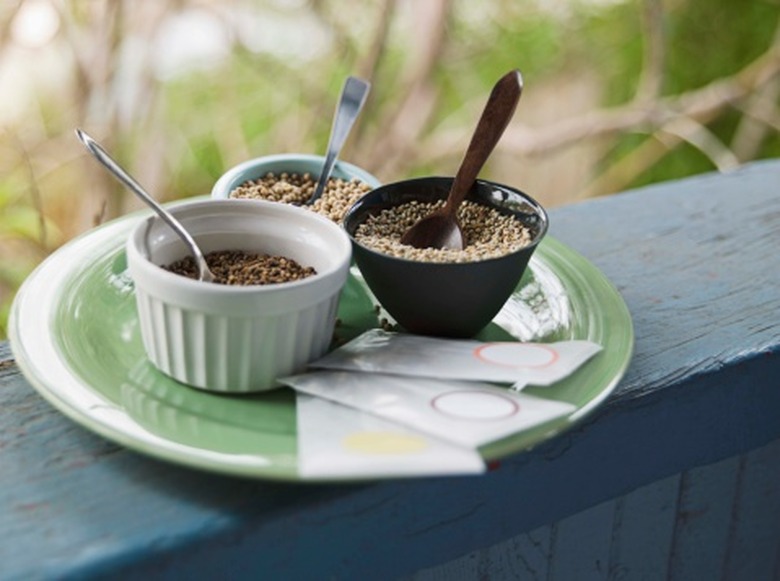Can I Grow My Own Yerba Mate?
Yerba mate is a type of holly (Ilex paraguariensis) that grows in the subtropical regions of South America. It's an evergreen shrub or small tree, and it's dioecious, meaning separate male and female trees. This herb is primarily used to make a stimulating tea — and is of economic and cultural importance in the countries that grow it.
Cultural Importance
Traditionally, dry yerba-mate leaves are placed into a hollowed-out gourd cup, hot water is added and the leaves are steeped. The cup is passed around, with hot water added each time, and each person drinks through a metal straw with a filter on the end. Drinking yerba mate is a common social bonding custom throughout many South American countries.
Natural Climate
Yerba mate is grown mainly in the countries of Brazil, Paraguay and Argentina in the subtropical regions. In these areas, the rainfall averages about 65 inches per year, and temperatures are between 60 and 85 degrees F. Yerba mate grows in sandy fine-grained soils with good drainage. For people who live in areas without these conditions, yerba mate is grown as an indoor plant.
How to Grow Yerba Mate
Yerba mate is tough to propagate for most people. Seeds need to be stratified (put through a cool period) and may take between two months and a year to germinate. Cuttings need to be semi-woody, taken late in summer and treated with a rooting hormone like Rootone. Some gardeners have had success dipping cuttings into a 50-percent acetone and water solution before using rooting hormone. Stick cuttings in a perlite and peat moss mixture.
Where to Buy Seeds and Plants
Seeds are found at many online stores. Entering "yerba mate" in a search engine leads to several sources for the seeds, the prepared tea and the drinking accessories. Live plants are also obtainable online from a few nurseries that commonly sell herbs and culinary plants. Yerba-mate seeds and plants aren't normally found at local garden centers, but sometimes a search in a local herbal medicine shop yields results.
References
- Yerba Maté: The Tea of South America; Pan American Union, 1916
- Secrets of Plant Propagation; Lewis Hill, 1985.
- Practical Woody Propagation for Nursery Growers; Bruce Macdonald, 1986
